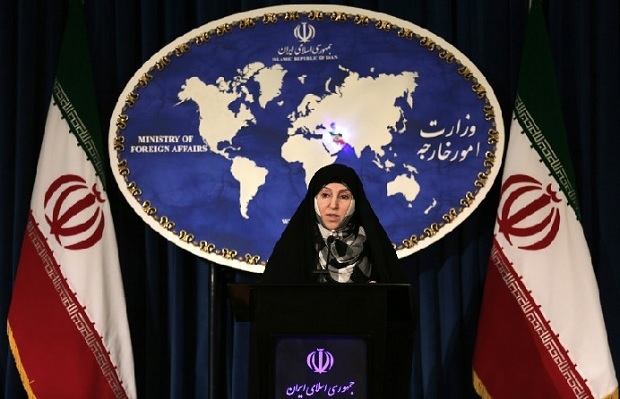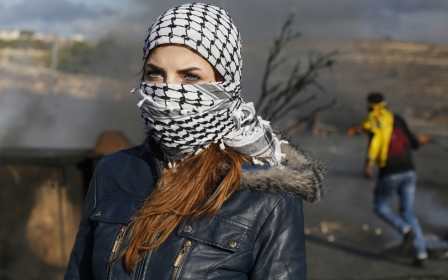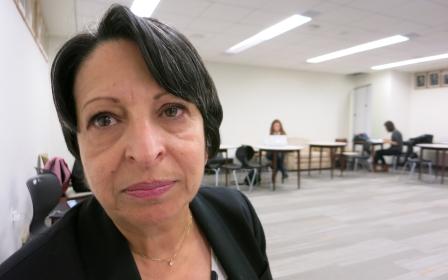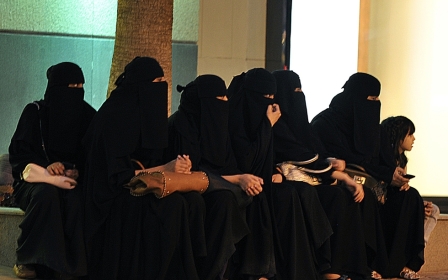Iran appoints first female ambassador in 40 years

An age-old taboo was broken in Iran in recent weeks as Mohammad-Javad Zarif, Iran’s foreign minister, fulfilled one of the promises he made to the nation when he took over the foreign ministry.
Marzie Afkham, the first female spokesperson for the foreign ministry, has been appointed the first female ambassador since the Islamic revolution, which toppled the Pahlavi monarchy in 1979.
This year has seen unprecedented developments for Iranian women. For the first time, nine women were selected by the Justice Ministry to serve as lawyers alongside their 1,200 male colleagues.
Before the revolution, in 1976, Mehrangiz Dolatshahi, a female member of parliament, was appointed as the first woman to head the Iran’s mission in Denmark.
At the end of October, 40 years after Dolatshahi's appointment, it was announced that Afkham will head Iran’s mission in Malaysia. Afkham is now the head of the Centre for Public and Media Diplomacy in the Ministry of Foreign Affairs.
Afkham entered the diplomatic service in her early 20s. Since then, she had held various posts such as the head of publication centre and advisor to the foreign minister.
When Zarif took over the foreign ministry, he pledged to appoint a female ambassador and name a woman as the ministry's spokesperson.
In fact, he used Afkham for both occasions, first naming her spokesperson and now, two years later, sending her to Malaysia as the first female ambassador, appointments that have been met with an overwhelmingly positive response. Iran’s Supreme Leader Ayatollah Ali Khamenei has also expressed approval with Zarif’s decision.
Ahmad Shirzad, a reformist political analyst, told MEE: “Since Rouhani has taken office, we have witnessed some important positions handed to women. However, what happened in the foreign ministry is unprecedented in our history.”
“When Afkham was the spokesperson," Shirzad said, "she proved her competency, and I think she can manage the Iranian mission in Kuala Lumpur very well.”
He emphasised: “Such decisions pave the way for more significant roles for women in Iran.”
Shahrbanoo Amani, a female activist, told MEE: “Mrs Afkham is the first female spokesperson during the Islamic revolution to have such success and a convincing performance.”
“Naming Mrs Afkham as the ambassador is just the beginning. Based on the wide purview of Mr Zarif, it is possible to have women in 30 percent of our embassies abroad in the near future," Amani said.
Afkham’s appointment to Iran’s mission in Kuala Lumpur coincides with new and unfolding events in Iranian politics. Several clerics and politicians have called for increased female involvement in the Assembly of Experts’ election, a clerical body which supervises the Supreme Leader and chooses the next leader.
Abolhassan Navab, a senior cleric, said: “If women receive the required certificates, a proof of being Mujtahed (a person qualified to evaluate Islamic law), they can nominate themselves.”
Ayatollah Mohammad Mousavi Bojnordi, said: “I believe there is no obstacle in the way for the nomination of women. Under Islamic law, gender is not an issue nor is it criterion for the Assembly of Experts’ election.”
“In my opinion, women even have the ability to become Marja (a Grand Ayatollah that has the authority to make legal decisions)," said Bojnordi.
Ever since Rouhani entered office, opportunities for women have increased as many positions opened up to them. Within a few days of Rouhani’s presence in the presidential palace, Masoume Ebtekar was chosen as the deputy of the president and head of the Department of Environment. However, Ebtekar has faced stiff criticism from hardliners, who accuse her of mismanagement.
“Women as the first teachers of humans have an undeniable role in the extent and scope of a country’s progress," Ebtekar has said.
Besisdes Ebtekar, Rouhani has two additional deputies who are women. Additionally, several women have also been named governors in Rouhani’s administration.
Rouhani's progressive policies
Before the presidential election, in addition to appointing women to high ranking posts, Rouhani made a number of other promises, including reigning in the police tasked with regulating women's dress codes.
Hoda Fereidouni, a college student who is majoring in chemistry at Islamic Azad University, told MEE: “From the first day President Rouhani came to power, the overall atmosphere has shown improvement. For example, the morality police are not active on the streets anymore, and their activities have dropped significantly.”
But having less police on the streets has caused trouble for Rouhani, as many hardliners have attacked him for his relaxed policies regarding women.
The parliament has also passed a bill referred to as “enjoining good and forbidding wrong” to confront and fine women who don’t observe the Islamic dress code properly.
Rouhani’s administration has so far refused to implement this law, which has led to some criticism.
“We can’t ask police officers, equipped with guns and handcuffs, to issue a decree and make a religious decision about people [on the street]," Rouhani said.
Ayatollah Mohammad Yazdi, the head of Assembly of Experts, said: “The hijab situation in Iran is not good and the government should pay attention to the demands of the nation regarding this issue."
Without naming Rouhani, Yazdi added: “Once the police intends to control the hijab issue and confront women with bad hijab, some people meddle and say this is not the police officers’ duty.”
Despite these grumblings, overall, Iranian intellectuals consider promoting Afkham to ambassador as a very positive move.
“Naming Mrs Afkham as the first female ambassador after the Islamic revolution signals a better landscape for women in the future," said Shirzad, the political analyst.
“Iran’s situation is different from the past," said Amani, the activist. "Nowadays, conferences are not made up of all men anymore; that is changing and women have more influence in public life."
“Everyone should know that Iranian women can play the role of a bridge between Iran and the world and that can boost relationships," she added.
Elahe Koulaie, a professor at the University of Tehran, told local media, "One of the most important problems facing women is that they don't have enough self-confidence and don't believe in themselves.
"The change of how women think about themselves takes time, thus governments have made a decision to make these changes quicker,” she said.
New MEE newsletter: Jerusalem Dispatch
Sign up to get the latest insights and analysis on Israel-Palestine, alongside Turkey Unpacked and other MEE newsletters
Middle East Eye delivers independent and unrivalled coverage and analysis of the Middle East, North Africa and beyond. To learn more about republishing this content and the associated fees, please fill out this form. More about MEE can be found here.




